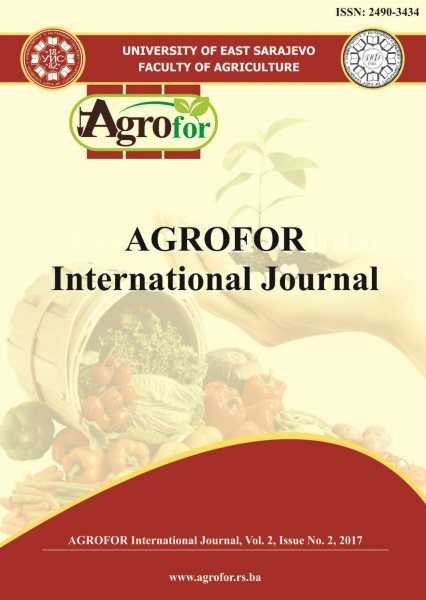EFFECTS OF TILLAGE SYSTEMS AND FERTILIZATION LEVEL ON THE WEEDINESS OF WINTER WHEAT
DOI:
https://doi.org/10.7251/AGRENG1702147KAbstract
This paper deals with results of the effects of three tillage systems and different
nitrogen fertilizer level on floristic composition of weed community in winter
wheat in investigated period on the chernozem-luvic soil type. The trial was carried
out on the estate experimental field of the Faculty of Agriculture - Zemun
"Radmilovac" near Belgrade in Serbia. Tillage systems and fertilization with
nitrogen fertilizers have a big influence on weed control and floristic composition,
number of species and individuals and biomass of weeds in winter wheat. The
weed community in winter wheat crops was composed of 14 weed species in both
year of investigation, respectively, with dominancy of terophytes. The obtained
results showed that the dominant weed species were Avena fatua L., Papaver
rhoeas L., Sinapis arvensis L. and Stellaria media (L.) Vill. from annuels and.
Convolvulus arvensis L. from perennials prevailed in the weed community in
winter wheat crops.Conventional tillage system with nitrogen level in top dressing
120 kg ha-1 had better effect in weed control than both of both investigated
conservation tillage systems (MTS and NTS) had. However, mulch tillage has not
lagged behind the conventional tillage increased total weed number of individuals
annual and perennial species especially fresh biomass. No-tillage system makes
weed control difficult.

